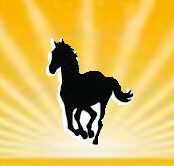It might seem strange, but one of the most important lessons any teacher will ever take is an assessment lesson. They are vitally important for both teacher and rider because that lesson is the “proof of the pudding” after you, the rider or the parent of a rider, tell us the skills which have been learned.
All riding schools should do Assessment Lessons for new but experienced students. These riders have learned their skills at different schools, sometimes in different countries. Each school, no matter if they are BHS or ABRS, have guidelines and ideas regarding a teaching plan which no other school will have. A Novice rider at one school could easily be a Beginner at another. The levels of riding are not set in stone, unlike the teaching platforms which are. It is important not to get hung up on the class title, but rather what is going to be taught in that class and what skills you/your child are needing to master.
So what do I look for in an assessment lesson? It’s 4 areas but a long list….
1. Proper Mounting.
Do you greet this unknown horse first? Do you collect up your reins and make sure the girth is tight before putting foot in the stirrup? Do you fix the girth or do you expect the groom to do it? Do you mount straight and sit gently in the saddle or do you bend over the saddle and flop in heavily? Does your leg clear the hindquarters or do you drag it across? Do you easily find the right stirrup? Can you adjust your stirrups or do you expect your groom to do it?
2. Posture.
Do you sit straight in the saddle? Are your shoulders back? Are you holding the reins correctly with your thumb on top? Do you have your heels down? Are your toes forward and your legs wrapped around the horse? Are your shoulders, hips and heels in a straight line? Are your arms close to your body? Are your arms in a relaxed yet ready position with a natural curve to them? Are your hands close together on the mane or wide apart above your knees? Is you head up and your eye line level? Are you looking where you are going?
3. Confidence.
Are you comfortable when walking the horse? Are you rising confidently in a trot? Do you sit deeply in a sitting trot or canter? Do you maintain your balance on downward transitions or do your fall forward? Do you like the canter? Do you like jumping? Do you like laterals or do they scare you? Are you put off or upset when your horse doesn’t get what you are asking for the first time you ask?
4. Technique.
This is where there is the most difference in teaching. Each teacher has their own ideas of what is right and important at every level. However, all teachers agree that falling off is not good. So I am looking at your balance — are you moving with horse or are you sitting on top with little to no seat connection? Do you make a positive upward transition or do you force your horse into it? Do you use your leg(s)? Do you depend your whip to create your horse’s impulsion? Do you know your diagonals and do you use them? Do you know your leads and do you correct them when they are wrong? Can you ride positively in light seat or do you collapse back? When you canter are your hands quiet with proper contact or are you flapping or “rowing the boat”?
So when you come to ride at Sunshine, that first lesson you aren’t going to “learn much” because I or my teachers have lots to learn about you. We have 30 minutes to decide what you can and can’t do; what riding group or level you are at; what is the first thing we need to teach you. We can’t make a mistake. Too much is on the line for us to blithely not check everything as you/your child could fall off and be injured; our insurance could be voided if it is found we were not competent when assessing your level; we could lose our license for negligence. However, we keep this information to ourselves and you in the dark. And you question what you just paid £25 for.
I read the reviews. Both the bad ones were for assessment lessons. Perhaps I need to be more clear as to what is going on. I don’t want these lessons to turn into examinations because then I don’t see what is actually natural to the rider. Perhaps I shall print this off and post it on the office door. In any case, my main concern is that the rider is kept safe and extended just enough to learn one thing and learn it well. Those who went other places, I wish you well and hope your riding develops both you and those around you
Sometimes, the education has to go both ways.
Keep riding,
Kimberly
